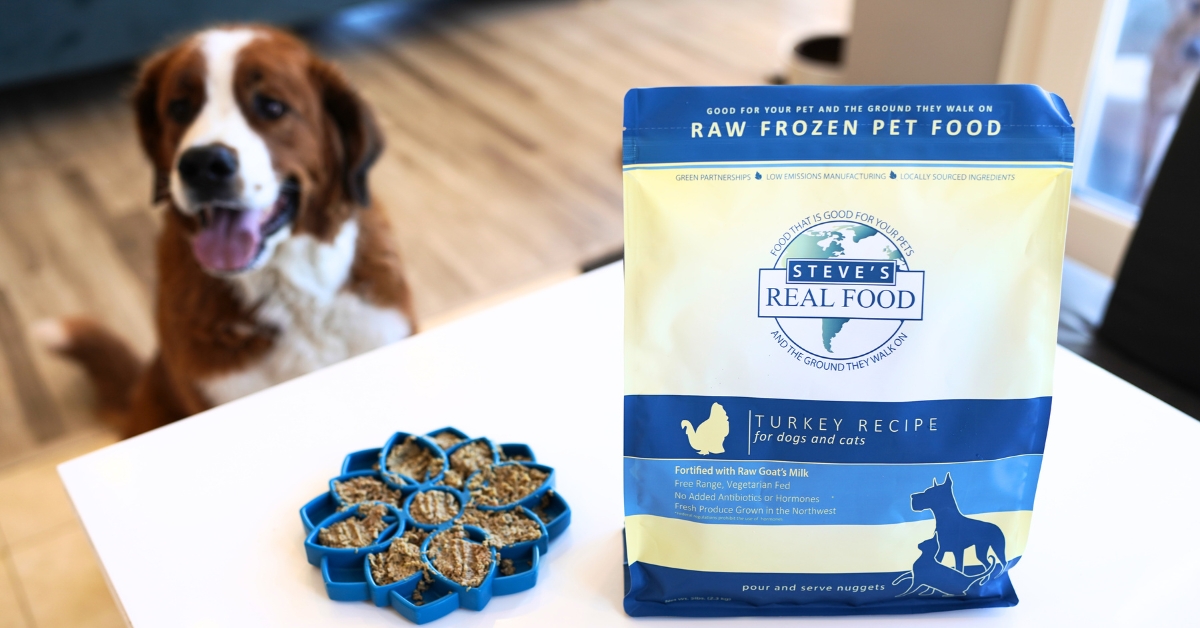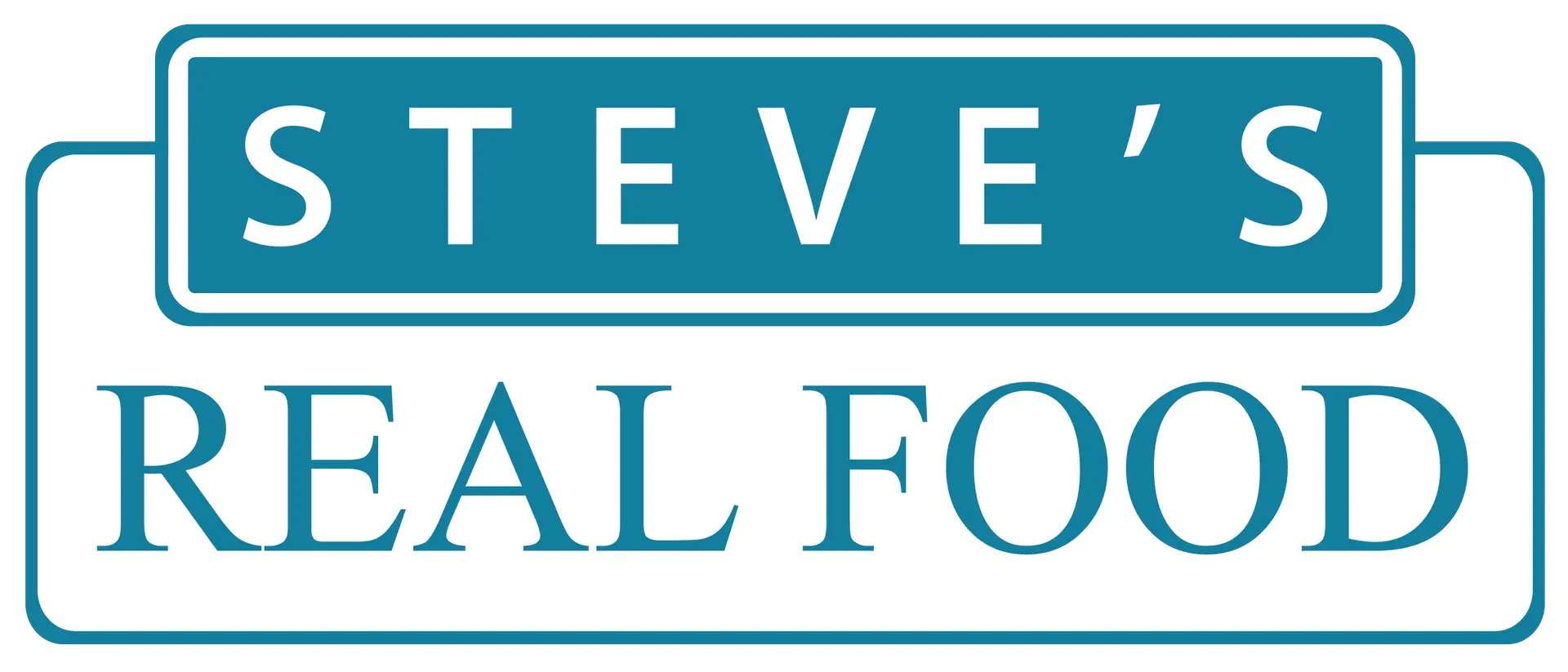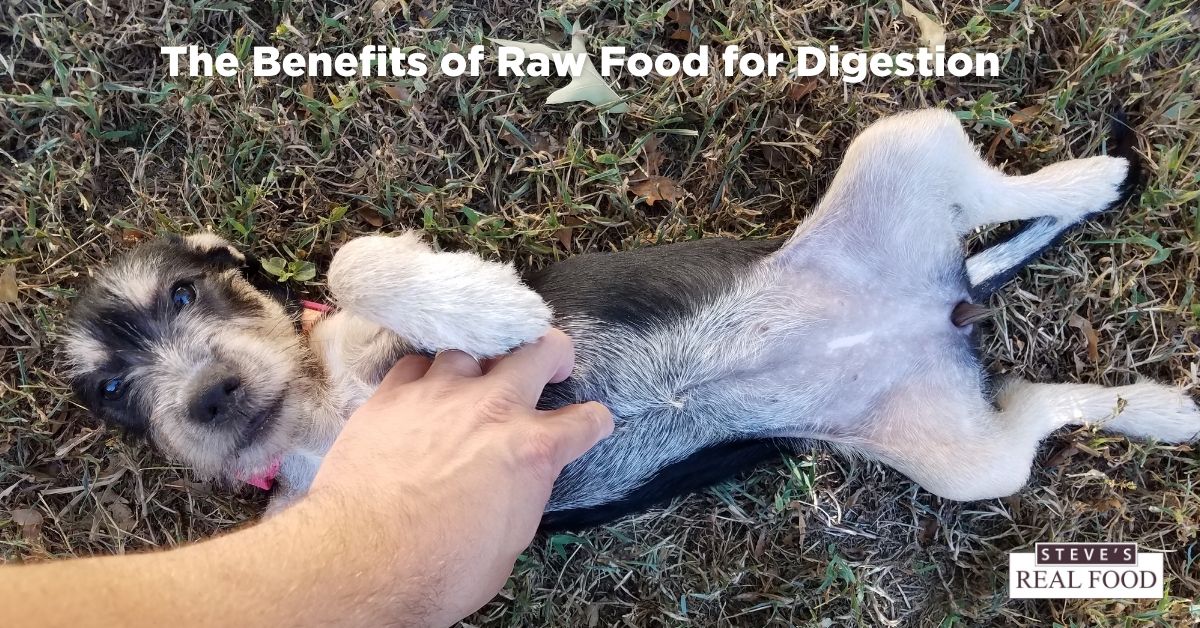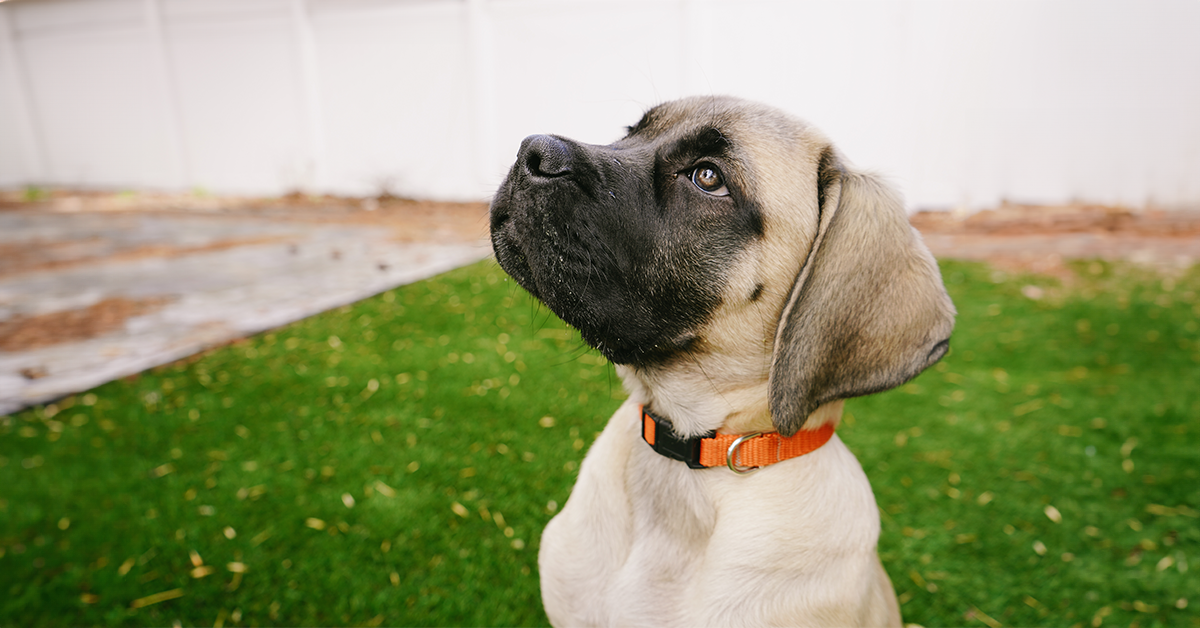Episode 6 – In One End…
You may often hear about how digestible raw food is, but is there any proof of why? There sure is! In this post, we will go through how and why raw food is easier for pets to digest and how, as a result of that, your pet will be happier, healthier, and poop less (really!).
Enzymes are perhaps one of the greatest aspects of raw food. We’ve gone somewhat in-depth about enzymes in an
earlier post, but here’s a refresher: enzymes are catalysts for many biochemical processes in the body from digesting food to replicating DNA. These vitally important molecules are highly specialized and considerably fragile; temperatures as low as 118 degrees Fahrenheit can destroy nearly all enzymes in food. So why do we care so much about these little guys? Because the more enzymes we can obtain from whole raw food sources, the less our bodies have to work to digest the food we eat. Foods that are rich in enzymes can actually “predigest” in the stomach in a process called autolytic digestion. This happens without the aid of stomach acid and can be responsible for up to 75% of total meal digestion. If the body is able to predigest the food in this manner, it will not have to use its own store of digestive enzymes from the pancreas and stomach acid levels can remain low. Without ample enzymes in the food, the pancreas and small intestine have to work overtime which in turn stresses the endocrine system and can lead to problems such as leaky gut syndrome and diabetes which of course cause a whole host of problems on their own.
Take away: More food enzymes = less work for the body to digest.
Raw food also contains whole, undenatured
proteins. This means that the protein molecules found in raw meats (and produce too!) are in their whole, natural, and easily recognizable form. Cooking alters proteins by breaking down molecular bonds and disrupts alpha-helix and beta sheets, causing the proteins to uncoil and reshape into unrecognizable forms. This inability to recognize the shape of a protein is one of the greatest causes of food-based allergies. Basically, the body has no idea what to do with the weird-shaped proteins and it sends a team of histamines to destroy it. And we all know histamines can cause a whole lot of damaging swelling, heat, and uncomfortable itching. Interestingly, dogs and cats (and humans) can have an allergic reaction to a cooked protein, but can oftentimes tolerate the raw form of the food. It’s one of the main reasons why infants can easily digest breastmilk, but as adults, nearly 97% of the world’s population is lactose intolerant to some degree.
Take away: Cooking proteins makes them less recognizable and digestible.
Probiotics are another great aspect of raw foods. Probiotics are commonly referred to as “good bacteria” and are one aspect of a healthy bacteria ratio and biome both inside and outside of the body. There are trillions of bacteria cells in dog and cat bodies and only so much real estate, so bacteria strains are constantly battling each other for precious territory. Without enough “good bacteria” in the body, the bad bacteria (and yeasts) can overgrow and cause lots of problems such as widespread yeast infections and diarrhea. Raw foods contain live, naturally-occurring probiotics that can help your pet keep a nice healthy ratio of good to bad bacteria, which in turn can help support gut health, brain function, and infections prevention.
Take away: Healthy, live probiotics = healthy, lively pet.
Naturally occurring
moisture is pretty important too.
Intracellular moisture is the fancy name for moisture that is found in plant and animal cells. In addition to providing the most natural, effective way for dogs and cats to absorb moisture, intracellular moisture helps keep the whole digestive process a well-lubricated machine. Think of raw food cells as little miniature water balloons. Those little balloons stay intact until they reach the small intestine where cell walls are broken down and processed. Water that is added back into a cooked food or water that is drunk cannot behave in this way and goes through the digestive system in a separate process. Since the body requires moisture to digest and process any food, it would make sense to feed our pets a diet that already has that moisture built in, so they don’t have to use their own moisture reserves to complete the task. Pets who are fed a diet high in naturally-occurring moisture can digest their food more easily and do not have to over-consume water. In fact, many raw-fed dogs and cats drink very little water from their bowls! Another reason why moisture is so important? It helps to flush out the liver and kidneys, keeping them as healthy and free from excess toxins as possible.
Take away: Naturally, occurring moisture eases the digestion process and helps support liver and renal health.
Lastly, a word on poop.
Poop is one of our favorite things to talk about in the raw pet food world. Poop is the best evidence for what’s happening digestively within a pet, and when feeding raw food, you’ll see plenty of proof in the pudding. Well, pudding may be the wrong word. That’s because the poop of raw fed pets is more firm and dry than anything else. Less smelly too. Why? Because the pet is using everything it is eating, instead of passing on indigestible food that starts to get preeeety pungent. By eating raw food, your pet is absorbing and using all of that
naturally-occurring moisture found in raw meat and produce, leaving behind dry poops that are easy to pick up and have a pleasant aroma (ok, that last part might be pushing it). One of the greatest things about this hard, dry poop is that it helps to naturally express the anal glands of cats and dogs, so you don’t have to worry about your pet developing that particularly stinky problem. But the best part about all of this business is that you’ll notice your pet poops less frequently. Waaay less frequently. And who doesn’t love that?
Take away: More raw food = less poop.
